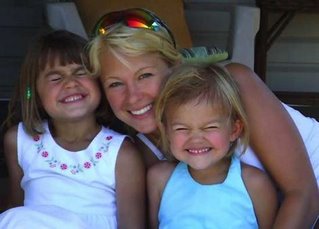Family Court fights back over bias claims
To activists and supporters of children's rights,
What an amazing admission! ... in a Family Court's Christmas PR initiative. ...that the FC doesn't know how many parents is has excluded from children's lives!. That they will now respond by looking into what they have been doing for the last 31 years! Just when excluded parents from all over the world are enduing heightened grief for their children.
The fact that chistmass is so important to Children and family causes us all to focus on the horror foistered on our children by the Family Court.
And they trot out the PR lie they've been using for years ...
"Justice Bryant said the court figures could not be taken as the basis for generalisations about the fate of Australian children after their parents' divorce because the cases that went to trial in the Family Court comprised only 7 per cent of the court's case load and represented the most intractable, complex and difficult disputes "
This, in essence make the outrageous suggestion that Consent orders are consensual, that the court process, that expense and outcomes have nothing to do with the advise offered by lawyers to parents that would otherwise fight for the right to be more involved with their children.
And this ! .... " Comparisons would also be made between orders made by judges and those made "by consent" of the parents" What? ...as if the decisions people are forced into should be a rule of thumb.
Chief Justice Diana Bryant admits that fathers get excluded when there are "allegations of sexual abuse or substance issues," she said. "Mental illness is also a big issue in many cases, as is entrenched conflict" So if one parents lawyers accuses the other purest mental illness of substance abuse the kids cope it!
She even claims the number of people who avoid the Family Court altogether as proof of its success!! This is breathtakingly absurd and further admission of their failure to deliver justice to children and their otherwise excluded parents.
If there's a positive in this article its that at last we have convinced the Family Court that it has to at least pay lip service to the notion of accountability.
Regards,
Simon
Phone: +61 (0)3 5973 6933
Mobile: 0414 415 693
vascopajama@dodo.com.au
Family Court fights back over bias claims
Liz Porter December 24, 2006
STUNG by criticism that it is biased, the Family Court is hitting back by keeping detailed records of its decisions on parenting.
For the first time in its 31-year history, the court is collecting statistics — including the percentage of arrangements involving or excluding fathers.
"One of the things that frustrates me most is people saying that the court is biased — or that there is a systemic bias against fathers," the Chief Justice of the Family Court, Diana Bryant, told The Sunday Age.
She said the court had started documenting the number of shared parental responsibility arrangements and the number of orders where a mother or father was given sole responsibility for children.
Reasons for the exclusion of one parent are also being recorded, with the categories including "family violence", "mental illness", "substance abuse", "distance" and "entrenched conflict".
"With the parliamentary inquiry recently there was a lot of discussion about what the court was and wasn't doing," Justice Bryant said.
"There were a lot of people saying the court was biased. But nobody pulled out a judgement and said 'the result was wrong'. It was all about impressions and rhetoric and the court itself wasn't really able to respond well to that because we don't have the data."
Is this unprecedented fact-gathering exercise an effort to combat allegations by the Blackshirts and other men's groups that the court discriminates against men?
The Chief Justice said she would not describe the project in such terms. But she said that, in the past, the court had been unable to refute criticism with statistical proof.
The parenting order data will be posted on the court website, along with links to the 850 judgements handed down each year.
"So (it would say) here is the data, and if you want to read about the cases where there was no contact (with one parent), read them," Justice Bryant said.
Data would also be collected on the amount of time children of separated parents spent with each parent. In cases of little or no contact with one parent, reasons would also be noted. Comparisons would also be made between orders made by judges and those made "by consent" of the parents.
The first results should be ready by June 30.
Justice Bryant said the court figures could not be taken as the basis for generalisations about the fate of Australian children after their parents' divorce because the cases that went to trial in the Family Court comprised only 7 per cent of the court's case load and represented the most intractable, complex and difficult disputes.
Many separated parents also resolved joint sharing of their children amicably and with no court involvement. "These are parenting cases which involve allegations of sexual abuse or substance issues," she said. "Mental illness is also a big issue in many cases, as is entrenched conflict."
She said the court was often a scapegoat for people's unwillingness to compromise.
"People always want to blame someone for it. We get the hardest cases — and some of them are awful," she said.
The Family Court is also planning a February-March blitz on a backlog of 1490 Melbourne cases awaiting a final trial. All nine Melbourne judges will be sitting, with three extra judges being brought from interstate to help clear the list.
Delays in the court increased in the 2005-06 financial year, with 90 per cent of defended cases now taking up to 26.9 months before a final judgement — more than two months longer than in 2004-05.
But the Chief Justice said that the number of "pending" cases had dropped over the past two years, from 2100 in January last year, to 1550 last October and 1490 now.
She said the backlog of older cases was being cleared so judges would be free to start working on the new, "less adversarial trials" — a system that applies to all cases that began after July 1 this year.
Under this system, one judge would run each case from the beginning, helping the parties narrow down the issues in dispute and making hearings shorter.
Justice Bryant said having different judges at different interim hearings was identified as one of the many factors that bothered clients of the court.
Working at the bench
The long wait
In 2005-2006
■The average time between application and first hearing was 6.5 weeks
■ 91 per cent of cases completed within 27 months.
■50 per cent of cases took between 3.7 and 22.4 months.
On the books
Cases pending
January 2005: 2100
December 2005: 1725
October 2006: 1550
December 2006: 1490
http://familycourt.gov.au
Copyright: This article has been copied from the Melbourne Age's website to inform only. There is not commercial gain associated with sharing this article with others some of whom may not have read the Age on 24/12/2006. The article will gladly be removed if requested by the Age or the author of the article.


